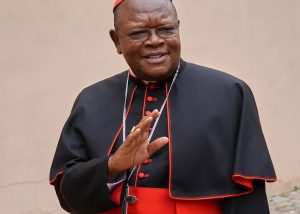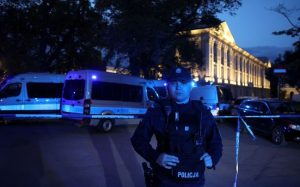KWS playing a crucial role in BETA in all corners of the country
4 min readFor years, the Kenya Wildlife Service (KWS) has been at the forefront of wildlife conservation in Kenya, but its impact has expanded beyond just preserving biodiversity. KWS now plays a significant role in community empowerment, job creation, and economic diversification, particularly through eco-tourism. These efforts align with the Bottom-Up Economic Transformation Agenda (BETA), which focuses on inclusive growth and development. By integrating conservation with community development, KWS is not only protecting the environment but also helping to drive economic growth, proving that natural resource preservation can fuel sustainable prosperity.
A key milestone in KWS’s broader mission is the recruitment of 1,274 rangers from all 47 counties, marking a historic achievement for the organization. These rangers will help combat poaching, wildlife trafficking, and contribute to Kenya’s climate change efforts. Notably, the recruitment emphasized gender inclusivity, with many women joining the conservation workforce. This shift reflects a transformative approach, as the sector has traditionally been male-dominated. The recruitment also provided job opportunities for many young people, empowering them and improving national security. Additionally, 150 cadets are undergoing training at the Manyani Law Enforcement Academy, which will further enhance operational capacity in addressing conservation challenges.
Cabinet Secretary for Tourism and Wildlife, Madam Rebecca Miano, highlighted the importance of gender equality in conservation, calling it essential for preserving Kenya’s heritage. She stressed that women, with their natural nurturing abilities, are well-suited for this role. By prioritizing inclusivity, KWS is ensuring that both youth and women are integral to the future of conservation efforts.
Tourism continues to be a vital contributor to Kenya’s economy, and KWS is working hard to ensure its growth while promoting sustainable practices. The organization has opened 122 new sites for private investors, increasing bed capacity in national parks and creating fresh opportunities for local communities. These new initiatives are expected to increase bed capacity from 1,800 to over 4,000, driving job creation and boosting local economies. Furthermore, KWS is rebranding key parks to attract international tourists while promoting lesser-known destinations, such as Mt. Elgon, Ruma, and Sibiloi. These efforts are beneficial for remote regions, which will see improvements in infrastructure, job creation, and business development.
President William Ruto has underscored the economic potential of wildlife, emphasizing that conservation is an investment, not just a cost. He likened Kenya’s wildlife to a “nature’s savings account,” with each conservation effort contributing to thriving ecosystems, clean air, and a vibrant tourism sector.
However, human-wildlife conflict remains a significant challenge, particularly in areas close to wildlife habitats. To mitigate this, KWS has introduced innovative solutions, including 1,250 predator-proof enclosures and solar-powered lights to deter wildlife from entering human settlements. Additionally, regular wildlife drives are being conducted to reduce human-wildlife confrontations. Projects like the predator-proof bomas in Taita Taveta and the Chyulu REDD+ Project exemplify KWS’s efforts to harmonize wildlife conservation with community livelihoods.
In addition to addressing wildlife-related challenges, KWS is focused on community development by investing in infrastructure. In Taita Taveta, for example, KWS has contributed to building roads, schools, and water supplies, benefiting both humans and wildlife. The organization has constructed 14 classrooms in high-conflict areas and allocated significant funds to support education, water access, and healthcare. KWS has also drilled boreholes and created water pans in arid regions, alleviating water shortages and reducing conflict between humans and animals.
Since 2019, KWS has created 450 jobs, with 80% of those positions filled by wildlife rangers. The organization has also supported 35,000 children in 94 schools with daily meals and awarded nearly 4,000 scholarships. The government has further supported community conservancies with infrastructure projects, such as roads and water supplies, which benefit both the local population and wildlife.
KWS is also tackling climate change through reforestation initiatives and carbon credit programs, which reduce atmospheric carbon and generate sustainable income for local communities. These efforts contribute to Kenya’s green economy and provide new employment opportunities.
Moreover, KWS has modernized its operations by leveraging technology. The introduction of the e-Citizen platform for revenue collection has streamlined the payment process for park entry and services, resulting in a record revenue of Sh7.6 billion in the 2023/2024 financial year. This success demonstrates KWS’s growing self-sufficiency and its vital contribution to the national economy.
As KWS continues to drive wildlife conservation and community development, its role in Kenya’s socio-economic progress becomes more evident. Through eco-tourism, job creation, and climate change mitigation, KWS is paving the way for a future where the environment and economy thrive together. By empowering communities, promoting sustainable tourism, and combating climate change, KWS is positioning Kenya as a global leader in both conservation and economic development. As President Ruto aptly stated, “Wildlife conservation is a cornerstone of Kenya’s socio-economic success.”






